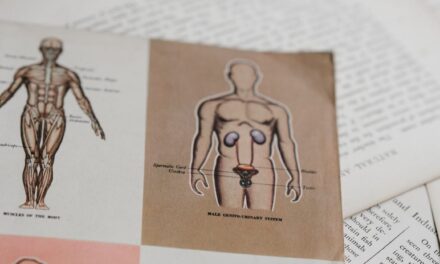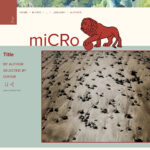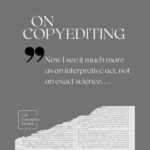One of our intrepid new volunteers, Linwood Rumney, has a great poet’s name, calling up linn (torrent of rushing water), a pastoral forest, a fiery drink, and . . . knees. Okay, that last isn’t exactly poetic, but still, we’re glad to have Linwood and his great name on staff. It’s also good to have his expertise as we plan for the AWP conference in Boston in March: He lived there for ten years and still misses it. In fact, we’ve had to tell him not to bring up Beantown in every single conversation (sometimes a story about a skunk on Hamilton Avenue is just a story about a skunk on Hamilton Avenue, not an invitation to hear about how skunks ran amok in east Boston in 2010).
Many of us came to Cincinnati from other places, though, so we understand the lost-Eden of the hometown. We let him talk to us in a fake Boston brogue, a la Jimmy Fallon’s “Sully” character from Saturday Night Live skits. We pretend to care about the Red Sox and declare our passion for the Grolier Poetry bookshop in Cambridge. We can’t be from Boston, but we can support Linwood in his withdrawal. (We’d like to point out to him, by the way, that Linwood is also the name of a small neighborhood in the eastern Cincinnati area). When he said he loved a Naomi Guttman poem from Issue 9.2 and wanted to share his thoughts with blog-readers, we encouraged him to do so, as long as he performed in front of the staff as a Southie. Though we don’t have audio or video of his oration, we do have this transcript:
Linwood Rumney: It was with a real sense of relief that I came across two new poems from Naomi Guttman, who was my undergraduate creative writing professor at Hamilton College. For me, after four months in the strange new land of Ohio, exiled from my beloved Boston (where I lived for almost a decade), Cincinnati only sometimes feels like home. Thus, to see some new work from Naomi was a great blessing, for two reasons. First, it reminded me of those years in Upstate New York, where I had an equally ambivalent sense of my regional affiliation. Second, it felt as though the cosmos, or at least The Cincinnati Review, was telling me that I am where I belong.
As a teacher of creative writing and poetry, as really my first mentor, Naomi was (and still is, I can guess) enormously patient and generous. I fondly recall the time she took in critiquing my poems. The care she took in urging me forward in my craft, uncovering gems in my poems that I never would have spotted for myself, was of course tremendously beneficial.
That patience and generosity is evident in Naomi’s poetry. It manifests, strangely enough, even in a poem with a title like “Domestic Dirge.” The lines here are bold, swelling to fill the entire page, though the deftly handled and complex alliteration that somehow never becomes overbearing makes it impossible to ever mistake the piece for prose. Given the title, and given that the poem’s most common words are “damn” and “curse,” you might anticipate an egotistical speaker lamenting her household chores. Certainly that speaker is in there, but only sometimes: “Damn dawn-to-dusk digging machine all day but Sunday, laundry day, damn/ laundry in dark drifts.”
Just as often, though, the speaker bemoans the minor suffering of others: “Curse soccer games where Onno sits out three/ quarters.” So, by the last line—“damn/ the Tooth Fairy, who will never visit Stephan’s bed again”—the poem successfully conflates the suffering of others, no matter how trivial, with the speaker’s suffering, pushing us to question the essence of the poem. Is this last line a bit of light humor lamenting Stephan’s loss of an important childhood source of revenue? Or is a mother lamenting that a child is growing up? Or maybe, as “dirge” might imply, something darker and more tragic has been revealed?
So many contemporary poems work hard to be tidy, making everything so accessible that it’s transparent and a bit bland. This subtle and understated gesture toward mystery at the end of “Domestic Dirge,” the poem’s unwillingness to answer these urgent questions, is consequently incredibly satisfying.










